When buying real estate, it’s important to receive a good return on your property investment. If your rental rate is too high, you may have a hard time attracting potential tenants. If your rental rate is too low, you won’t be able to maximize rental income to its full extent. For a good balance between occupancy rates and profits, make sure that you are charging a fair rental rate for your property.
What Is a Fair Rental Rate?
Fair rental rate, also known as fair market rate, is the gross rent of a property. This includes the cost of rent plus essential utilities such as gas, water, and electricity. Gross rent does not include non-essentials such as cable or satellite, internet, and telephone utilities.
Contract rent refers to the rental payment agreed upon in the lease. It can be based on gross rent, shelter rent — which is exclusive of all utilities — or somewhere in between.
Importance of Charging the Right Rental Price
If landlords had their choice, they would charge the highest possible rent for their property in order to maximize profits. However, if rent is too high, you will have a hard time attracting potential tenants.
A high vacancy rate will have a significant effect on your profits. As such, landlords must ensure that their rent is fair to attract potential tenants to their properties. The right rental price will depend on several factors, including:
- Property Type: Is your rental property a single-family home, a duplex, or an apartment? A single-family home will have a higher rental price than an apartment.
- Property Size: Is the rental unit a studio, one-bedroom, two-bedroom, three-bedroom, etc.? The larger the rental property, the higher rent you can charge.
- Utilities: Your rental rate may be priced higher if utilities (essential and/or non-essential) are included.
- Location: A rental property can charge more rent if it is in a desirable neighborhood. Other factors that can increase rent include a low crime rate, an excellent school district, and access to public transportation.
- Condition: Is your rental property newly renovated? The better the condition, the higher the rent.
- Amenities: Good views, outdoor space, centralized air-conditioning, pools, and gyms are just some of the amenities that can fetch a higher rental rate.
- Furnished: Does your rental property come with furniture and/or appliances? If so, a higher rental rate may be justified.
- Extra Features: Are there extra features such as garage parking or storage facilities?
- Pet Policy: Do you allow pets? Do you charge a pet fee?
Another important consideration for determining a fair rental rate is the demand. Even if you have a fair market rental value but the demand isn’t there, you might be forced to lower your rental price to attract potential tenants. Thus, landlords must monitor real estate trends in their area.
How to Calculate the Fair Rental Rate for Your Property?
There are several ways to calculate the right market rent for your property. Landlords can base it on fair rental values established by the federal government, refer to similar rental properties in your area, or utilize online resources. To determine which is the best method for you, here are the ways to calculate a fair rental rate:
1. Use Fair Market Rents Set By HUD
 Each year, the U.S. Department of Housing and Urban Development (HUD) comes up with fair market rents based on census data, renter surveys, and other relevant data regarding rental rates throughout the country.
Each year, the U.S. Department of Housing and Urban Development (HUD) comes up with fair market rents based on census data, renter surveys, and other relevant data regarding rental rates throughout the country.
The HUD has an online portal where you can view fair market rents per state, county, and metropolitan area.
The HUD uses these fair rental values for their housing programs, including the Housing Choice Voucher Program stated in Section 8 of the Housing Act of 1937. In this program, the federal government provides vouchers to help individuals afford to rent a home.
To qualify, you must meet certain requirements related to family status, income level, citizenship, and rental history. If you decide to rent to a Section 8 tenant, the HUD will be the one to pay you the fair market rent each month.
While landlords are not required to follow fair market rents, you can use these values to make sure that you are charging a fair rental rate for your property. It can also be a good starting point if you are unsure about how much to charge.
2. Examine Other Rental Properties in Your Neighborhood
Landlords must also ensure that their rental property is competitively priced. It can be very helpful to examine other rental properties in your neighborhood. Find rental properties that offer the same property type or size.
If the rental property is decently occupied, it means that they are charging a fair rental rate or something close to it. However, keep in mind that a high tenancy rate may also indicate a rental price that is too low. Meanwhile, if the rental property has a lot of vacancies, their rental price may be too high.
When inspecting other rental properties, make sure to look at the condition of the property, as well as amenities, views, furnishings, and accessibility features offered. If you think that your rental property is in better condition or has more amenities to offer tenants, you can justify charging a higher rental rate.
3. Browse Online Rental Websites
If you do not have time to physically visit other rental properties, you can do it online instead. Browse rental websites like Zillow, Realtor.com, or Apartments.com to find similar rental properties in your area. You will be able to see the average or suggested rental rates.
You can also check out recently rented properties or in-demand properties as these are the ones that likely charge fair rental rates. If your rental property has similar features and amenities, you can feel confident in charging the same amount for rent.
4. Use Fair Rental Value Calculators
There are also online resources that can help you compute a fair rental rate for your property. Some websites offer free services such as Zillow’s Zestimate feature while other websites like Rentometer.com or RentRage.com offer paid services.
If you are looking for a convenient way to determine a fair rental rate, you may want to consider signing up for these services. These websites use industry data to determine the rental rates so you can trust the results that they provide.
5. Consult a Property Management Company
 If you do not have a property management company yet, consider the benefits they provide.
If you do not have a property management company yet, consider the benefits they provide.
A property manager knows the real estate market very well and has experience setting rental rates for many other properties. Thus, they will be able to easily determine the fair market rent for your property.
Not only that but a property management company also assumes most of the responsibilities of a landlord. If you do not want to deal with essential but cumbersome tasks like collecting rent, marketing your property, screening tenants, and maintaining the property, it might be wise to hire a property manager to take care of your rental units.
Maximize Profits By Charging a Fair Rental Rate
Determining rental rates sounds easy but there is a lot of work involved. You need to study the real estate market, examine similar rental properties, and consult fair market rents in your area.
If the demand is high, you might be able to charge a higher rental rate for your property. On the other hand, if fair market rent is higher than current market rates, it might be wiser to find Section 8 tenants.
Even though this process may require a lot of time and effort, know that it is well worth it. By charging a fair rental rate, you’ll be able to maximize the profits of your investment property.
If you need further help determining a fair rental rate, make sure to visit our online directory of property management companies. You can easily search by city, state, or zip code to find the best property management company for your rental property.
RELATED ARTICLES:
- How Do You Calculate Rental Income?
- Looking to Increase Your Rent Prices? The Top 5 Tips for Doing It
- 3 Pro Tips for Rental Property Owners



 There are more open houses during the prime real estate season compared to the holidays.
There are more open houses during the prime real estate season compared to the holidays. If the real estate market is tough, consider making adjustments that will make your property more attractive to homebuyers.
If the real estate market is tough, consider making adjustments that will make your property more attractive to homebuyers. Tenancy termination does not just happen in a blink of an eye. As a landlord, you must give your tenant written notice of termination.
Tenancy termination does not just happen in a blink of an eye. As a landlord, you must give your tenant written notice of termination. Some tenants will put up a fight when faced with eviction either because they believe they are right or simply in an attempt to have the case dismissed. This can prolong the eviction process and cost you more money in the end.
Some tenants will put up a fight when faced with eviction either because they believe they are right or simply in an attempt to have the case dismissed. This can prolong the eviction process and cost you more money in the end. Cash flow is the difference between your rental income and property expenses. When investing in rental properties, you want to choose one that has a good or positive cash flow. That means that there is more money coming in than out.
Cash flow is the difference between your rental income and property expenses. When investing in rental properties, you want to choose one that has a good or positive cash flow. That means that there is more money coming in than out.
 Although listings usually show how much you expect to pay in rent, a lot of things could change in between posting the ad and signing the lease.
Although listings usually show how much you expect to pay in rent, a lot of things could change in between posting the ad and signing the lease.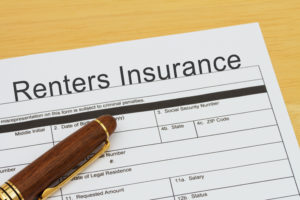 Another question to ask a landlord is whether or not renters insurance is required. This type of insurance covers the cost of your belongings in the event of theft or damages arising from peril.
Another question to ask a landlord is whether or not renters insurance is required. This type of insurance covers the cost of your belongings in the event of theft or damages arising from peril. Most rental property owners will want to renew a quality tenant’s lease. As long as you fit the bill, your landlord will welcome a lease renewal with open arms.
Most rental property owners will want to renew a quality tenant’s lease. As long as you fit the bill, your landlord will welcome a lease renewal with open arms. Before learning how to handle rental lease violations, you must first understand what constitutes a lease violation. Tenants who want to lease a particular property or unit must sign a
Before learning how to handle rental lease violations, you must first understand what constitutes a lease violation. Tenants who want to lease a particular property or unit must sign a  Property damages are no joke — not only are they time-consuming to deal with, but they can also be very expensive.
Property damages are no joke — not only are they time-consuming to deal with, but they can also be very expensive.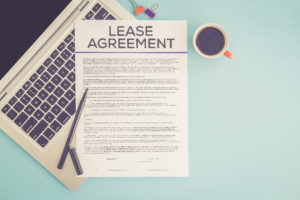 If you are a tenant, the first thing you must do when you encounter rental property water damage is to
If you are a tenant, the first thing you must do when you encounter rental property water damage is to  Sometimes, water damage in apartments happens due to a neighbor’s actions. For example, if your upstairs neighbor accidentally floods their bathroom, water may start to leak through your ceiling and damage your belongings.
Sometimes, water damage in apartments happens due to a neighbor’s actions. For example, if your upstairs neighbor accidentally floods their bathroom, water may start to leak through your ceiling and damage your belongings. Environmental hazards are a common legal liability of property managers.
Environmental hazards are a common legal liability of property managers.  If a tenant
If a tenant 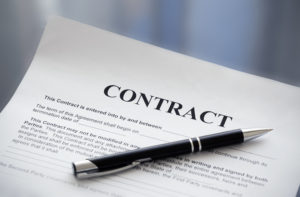 There is only so much that they can do to shield themselves from liability. That reality may be harsh, but it is nonetheless true. There are always new threats emerging in the real estate sector that may not have been anticipated in property management contracts.
There is only so much that they can do to shield themselves from liability. That reality may be harsh, but it is nonetheless true. There are always new threats emerging in the real estate sector that may not have been anticipated in property management contracts.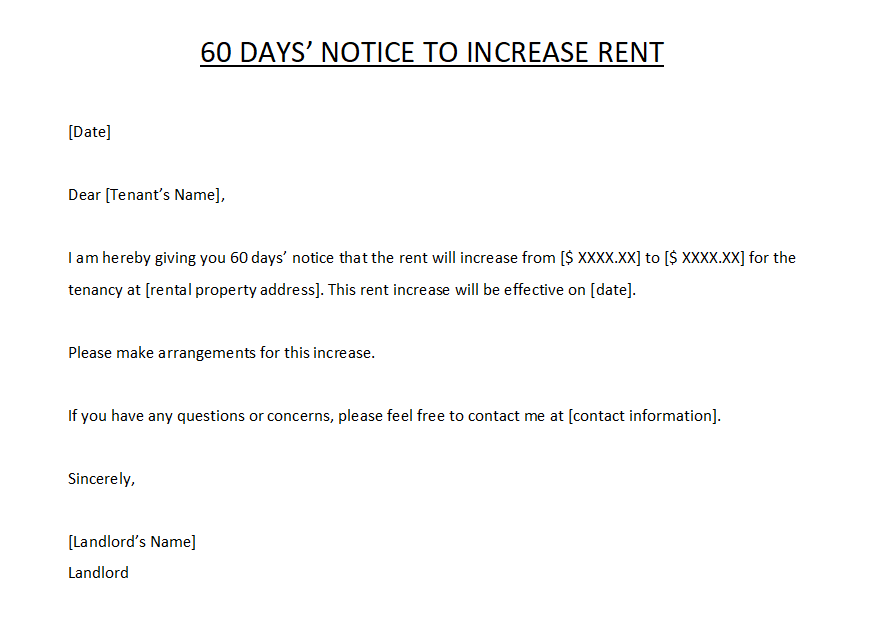
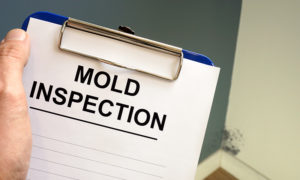 How Can I Test My Apartment for Mold?
How Can I Test My Apartment for Mold? Company
Company